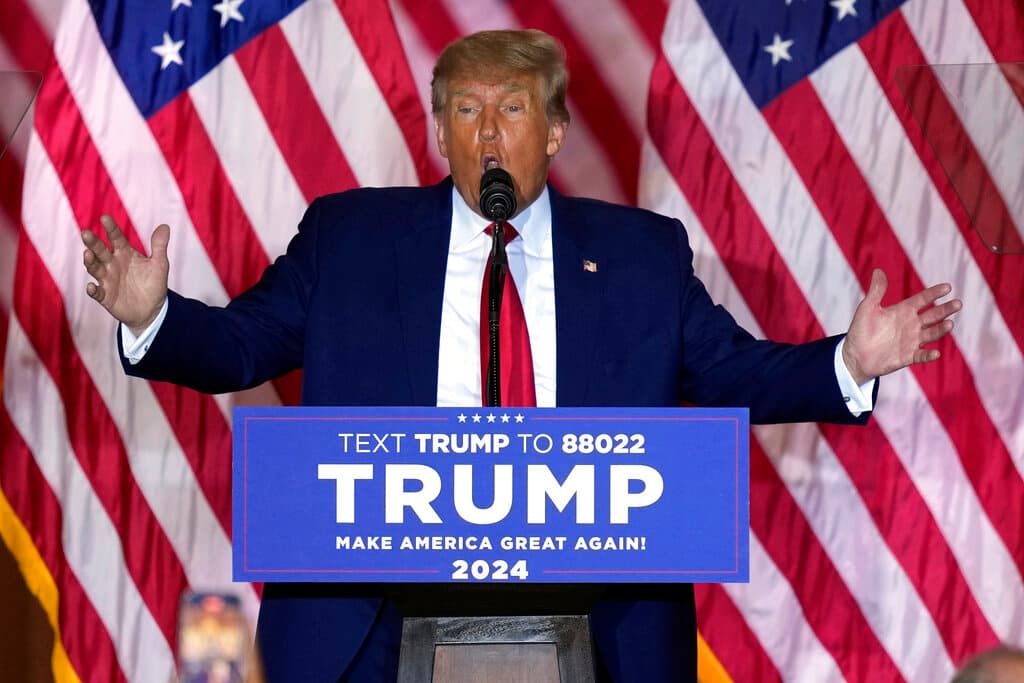The Test in 2024 for the New American Right
Was ‘Trumpism’ a flash in the pan based around a larger-than-life personality, or was it a substantive wake-up call for the GOP to ditch its outmoded bromides and sober up on trade, immigration, and foreign policy?

After President Trump formally launched his 2024 presidential run in November, a favorite parlor game of the chattering class has been to guess the identity of his first formally announced challenger for the Republican nomination. This week answered that question: Ambassador Nikki Haley.
Please check your email.
A verification code has been sent to
Didn't get a code? Click to resend.
To continue reading, please select:
Enter your email to read for FREE
Get 1 FREE article
Join the Sun for a PENNY A DAY
$0.01/day for 60 days
Cancel anytime
100% ad free experience
Unlimited article and commenting access
Full annual dues ($120) billed after 60 days

